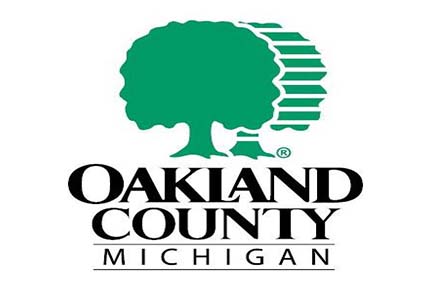
2021 Accomplishments Countdown: High-Speed Internet

FOR IMMEDIATE RELEASE December 29, 2021 Contact: press@michigan.gov
2021 Accomplishments Countdown: High-Speed Internet Governor Whitmer counts down to 2022 by highlighting administration’s progress on 10 kitchen-table issues that makes a difference in people’s lives
LANSING, Mich. – The Whitmer-Gilchrist administration is counting down the last 10 days of 2021 by celebrating Michigan’s progress on 10 fundamental kitchen-table issues. Today we celebrate progress Michigan has made on expanding high-speed internet.
“High-speed internet is critical to education, employment, and daily household functions,” said Governor Gretchen Whitmer. “I am proud of the actions we have taken at the state level to expand high-speed internet to over 18,000 homes and businesses and win hundreds of millions of dollars in federal grants for rural broadband, telehealth, and remote learning. We will continue working to ensure every family, community, and small business has a reliable, affordable connection that meets their needs and helps them participate in our economy.”
“Access to affordable high-speed internet is a necessity in our professional, personal and social lives,” said Susan Corbin, Michigan Department of Labor and Economic Opportunity director. “We are making significant investments and are committed to removing barriers in high-speed internet availability, affordability and adoption for disproportionately impacted communities of color, those in rural areas, and low-income households. These investments will increase opportunities to get connected so we can boost online learning, healthcare and economic opportunity for all Michiganders.”
Getting Things Done Governor Whitmer believes every family and business in Michigan deserves access to a reliable, affordable high-speed internet connection that meets their needs. She wants to close Michigan’s digital divide by expanding broadband, driving down costs, and boosting digital literacy. High-speed internet enables communities to develop and attract jobs and businesses. It expands economic opportunity for families, enhances educational experiences for students, and allows for remote access to key healthcare services. To ensure Michigan takes advantage of every opportunity for progress, the Governor launched the Connecting Michigan Task Force and the Michigan High-Speed Internet Office to coordinate the state’s efforts. Together, these programs have leveraged millions in state and federal funds to give families and businesses access to high-speed internet.
Key Numbers
“For the past decade, the community leaders in northern Michigan have known that the lack of high-speed broadband has been the number one deterrent to economic development, therefore making the expansion of high-speed broadband their number one priority,” said Tom Stephenson, Broadband Solutions Manager, Connected Nation. “In my opinion, 2021 was a good year for broadband in northern Michigan with several service providers and the rural electric co-ops building out fiber optic networks capable of bringing gigabit speeds to tens of thousands of homes and businesses in rural areas where high-speed broadband did not exist. Based on the data and meetings I have participated in; I see that pace increasing to around 100,000 homes and businesses in 2022 and will continue for the next two to three years with the lack of material and trained labor being the restricting factor. As these networks are being built out, I see for the first time our rural community leaders now able to focus on other key issues such as affordable housing, childcare, and transportation.”
“As a Rural resident for over 40 years, I have tried to keep up with communication through personal computers, tablets, and smartphones,” Pauline Bedwell, Richmond Twp. Planning Commission. “However, my area has watched the advances in internet connectivity pass us by, only to make use of high-speed internet at our jobs, schools, and libraries. Connecting to high-speed internet in our homes will be a long-awaited game changer. My rural neighbors and I are really excited about the upcoming opportunities a fast, reliable internet connection provides. Finally, we will have a connection that will allow us to work from home, attend online school, participate in telehealth services, facetime family and friends, and stream our favorite shows. I applaud the Whitmer-Gilchrist administration’s sustained efforts to connect rural areas of the Upper Peninsula.”
“The nation is on the cusp of taking great strides to close our digital divide,” said Eric Frederick, executive director of Connected Nation Michigan. “Michigan will have the opportunity to invest hundreds of millions of dollars in federal resources to ensure every Michigander has an affordable high-speed internet connection, a device to connect to it, and the knowledge of how to leverage that technology to improve their quality of life. The idea of an office within state government dedicated to this issue has been around for quite some time. When dedicated staff, capacity, and proper resources are in place, the Michigan Office of High-Speed Internet will be able to efficiently, effectively, and transparently administer new federal investments to create a more digitally equitable Michigan.” |





